Tuition fee protests to be investigated
- Published

Prince Charles and Camilla's car was attacked in central London
Student protests over tuition fees will be investigated by police after violent clashes led to 34 arrests in London.
The protests took place yesterday before and after the planned rise in fees was passed in parliament.
Protesters battled with police in Parliament Square, and some threw missiles.
A car carrying the Prince of Wales and the Duchess of Cornwall had a window smashed and paint thrown at it.
Windows were also smashed at the Treasury and the Supreme Court.
Met Police Chief Sir Paul Stephenson said: "We did everything we could to facilitate peaceful protest.
'Serious investigation'
"I'm sure the vast majority came here to protest peacefully, but a significant number behaved very badly," he continued, promising a "very serious investigation" into events.
But Mark Pritchard, a Conservative MP, said: "We've got 'kettling' that is supposed to confine people in an area to stop violence spilling out to other areas, and clearly it hasn't worked."
Why are students angry?
The decision to pass fees now means the maximum amount universities can charge in tuition fees will triple when the new system comes in, in 2012, from £3,000 to £9,000 a year.
Students argue that some people will now be priced out of applying for top courses or will choose not to go to university at all.
The Government argued that all graduates, after they leave university, will pay less up front than they do at the moment.
What are the figures?
Under the old system, students only start paying off their debt once they've left university and once they've started earning more than £15,000 a year.
Then, £1 in every £9 of earnings over £15,000 goes toward the student loans.
But when the new system comes in students will pay nothing back until they earn £21,000 a year.
Then, £1 in every £9 of earnings over £21,000 goes towards the loan.
So under the new system they will pay less monthly, but they'll keep paying out for longer.
Students are worried that with far higher fees, they'll be in debt for far longer.
- Published10 December 2010

- Published8 December 2010
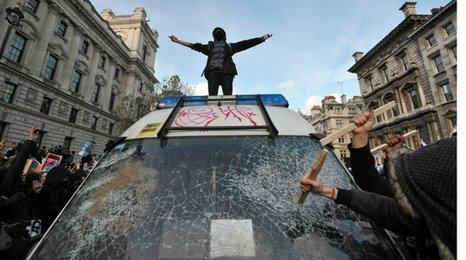
- Published7 December 2010
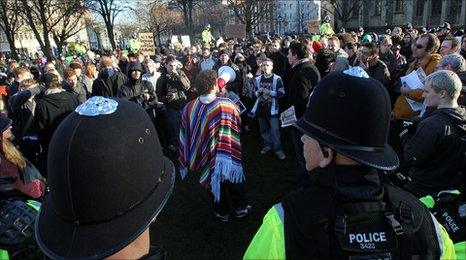
- Published30 November 2010
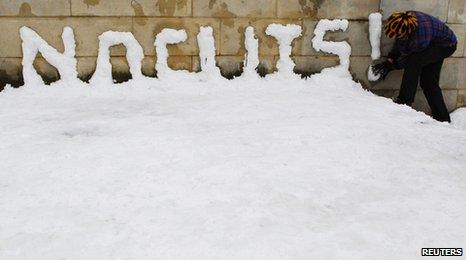
- Published25 November 2010
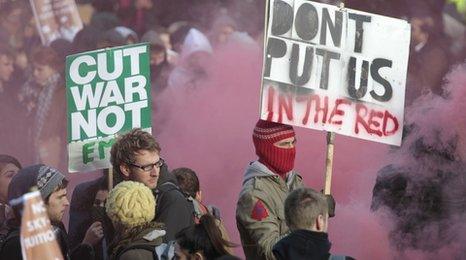
- Published24 November 2010
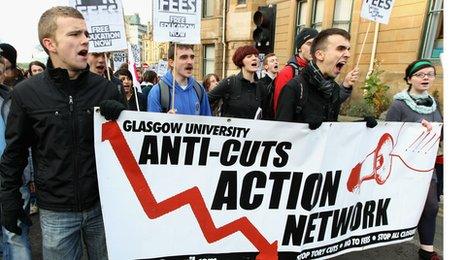
- Published10 November 2010
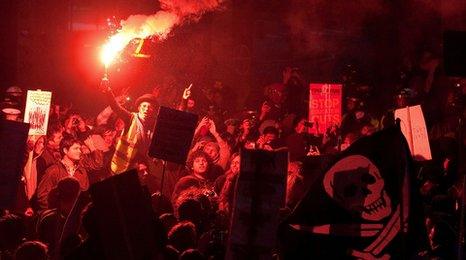
- Published12 October 2010

- Published13 August 2010
